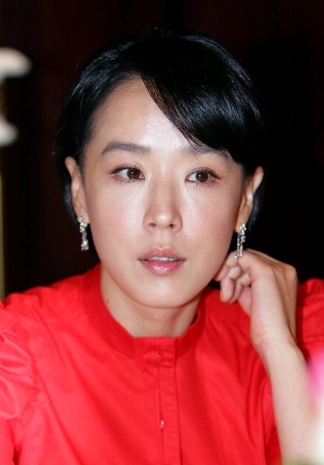Born in 1966, Kang Sooyoun began her career when she was cast in the street to become a model for a children magazine in 1969. Soon thereafter, she became one of the resident child actors for the now defunct TV station TBC. Viewers first discovered her when she joined the main cast in <The Adventures of Ttolttoli> (1976-1977), the TV series reactualization of the popular 1946 children movie of the same name. The year 1976 also marked her first film appearance in <Blo...
More
Born in 1966, Kang Sooyoun began her career when she was cast in the street to become a model for a children magazine in 1969. Soon thereafter, she became one of the resident child actors for the now defunct TV station TBC. Viewers first discovered her when she joined the main cast in <The Adventures of Ttolttoli> (1976-1977), the TV series reactualization of the popular 1946 children movie of the same name. The year 1976 also marked her first film appearance in <Blood Relations>, and before long she received her first lead roles, mainly in melodrama films such as <I Confess> (1976), <A Letter from Heaven> (1979) and <No More Sorrow> (1980).
After the forced merger of the privately owned TBC with public broadcaster KBS in 1980, Kang naturally joined the latter and was catapulted to the status of teen star when she landed the first lead role in the youth drama series <Diary of a College Student> (1983-1986). She then took a successful turn into adult roles with Bae Changho’s hit comedy <Whale Hunting 2> (1985) and enjoyed a string of commercial and critical success in the latter half of the decade and well into the 1990s. She dominated the conversation in 1987, as not only did she top-bill the summer hit and that year’s top Korean seller <Springtime of Mimi and Cheol-su> (1987), but she also made history as the first Korean performer to receive an accolade at a major festival when she won the Volpi Cup for Best Actress at the Venice Film Festival for Im Kwontaek’s <The Surrogate Womb>. She also received critical acclaim at home with a Best Actress win at the Grand Bell Awards for <We Are Going To Geneva Now> (1987) and continued that impressive run, with <Come, Come, Come Upward> (1989) earning her the Bronze St. George for Best Actress at the Moscow International Film Festival, on top of another Grand Bell Award, which prompted the Korean press to dub her “Korea’s first world star”. She went on with <That Which Falls Has Wings> (1989), another commercial hit that allowed her to pick up her third Grand Bell trophy in four years.
Then the most bankable actor of her generation, Kang was also a constant presence on the awards circuit over the next decade as she showed the full extent of her acting range, with eight Blue Dragon Film Award nominations in the Best Actress category between 1990 and 1999. She represented the changing images of women in Korean society in numerous movies such as <The Road To Race Track> (1991), <Blue in You> (1992), <Go Alone Like Musso's Horn> (1995), <Their Last Love Affair> (1996) and <Girls’ Night Out> (1998). After portraying a femme fatale in the thriller <Final Blow> and a secretive woman in <Rainbow Trout> (1999), her roles became scarce. She earned some praise for her turn as a power-hungry concubine in the period drama series <Ladies of the Palace> (2001-2002), her first television credit in 15 years. Her last major film credit, <Hanji> (2010) marked her long-awaited reunion with Im Kwontaek, the director who helped her make a name for herself on the international stage, as well as her <Springtime of Mimi and Cheol-su> co-star Park Joonghoon. In 2012, her long-time friend and former Busan International Film Festival director Kim Dongho cast her along with Ahn Sungki to play themselves as members of a festival jury in the short <Jury>. In 2015, she stepped up to assume the responsibilities of co-executive director of the Busan International Film Festival, then acting between 2016 and 2017 as the sole director, at a time when the Korea’s top film event was facing an existential crisis after it suffered from political interference.
Kang Sooyoun, Korea’s “First World Star”, died at 55 on May 7, 2022, after she was found in a state of cardiac arrest due to a cerebral haemorrhage. Featuring her final role, the post-apocalyptic Netflix original film <Jung_E> from Yeong Sangho released posthumously later that year.
Less









